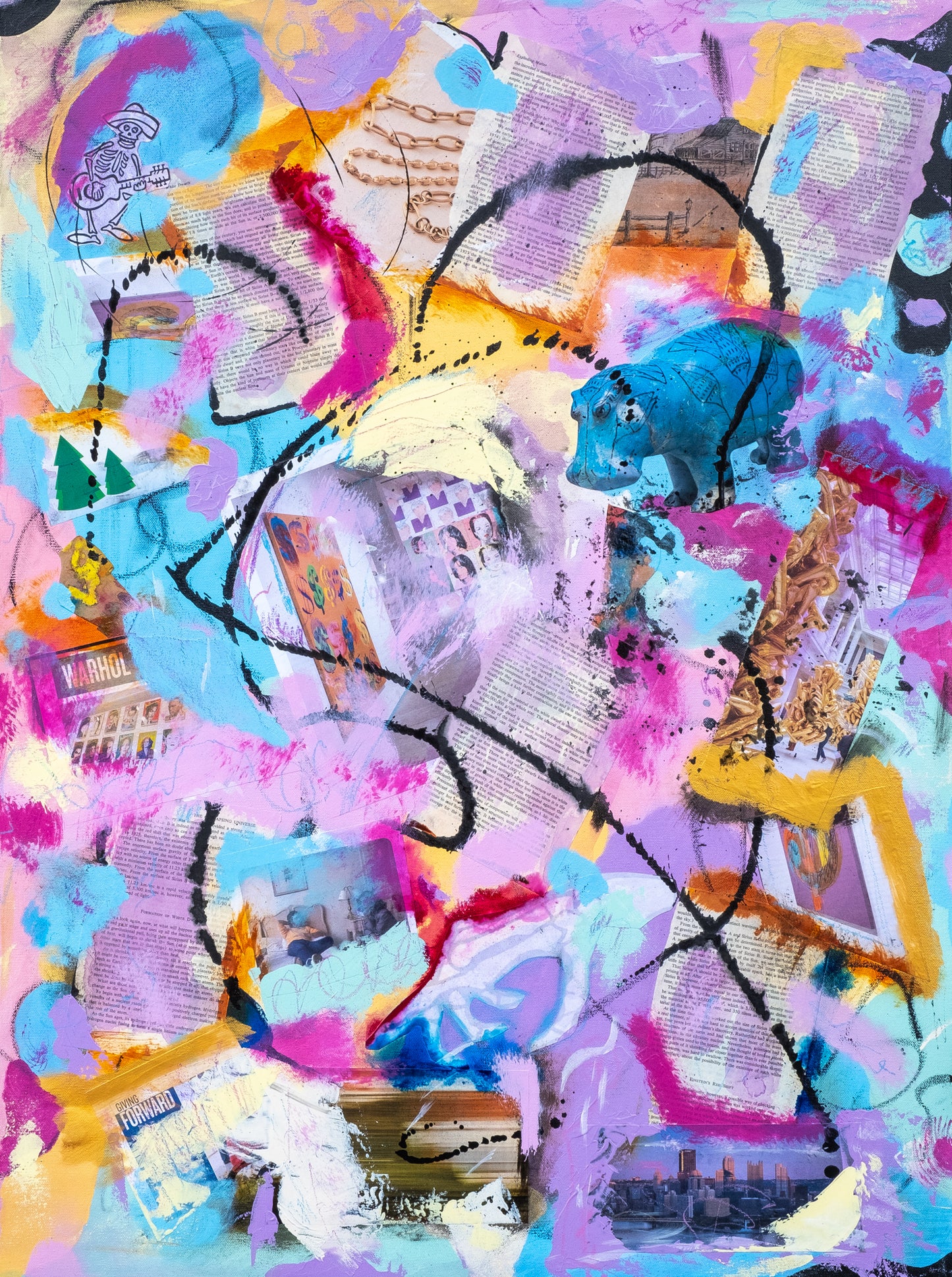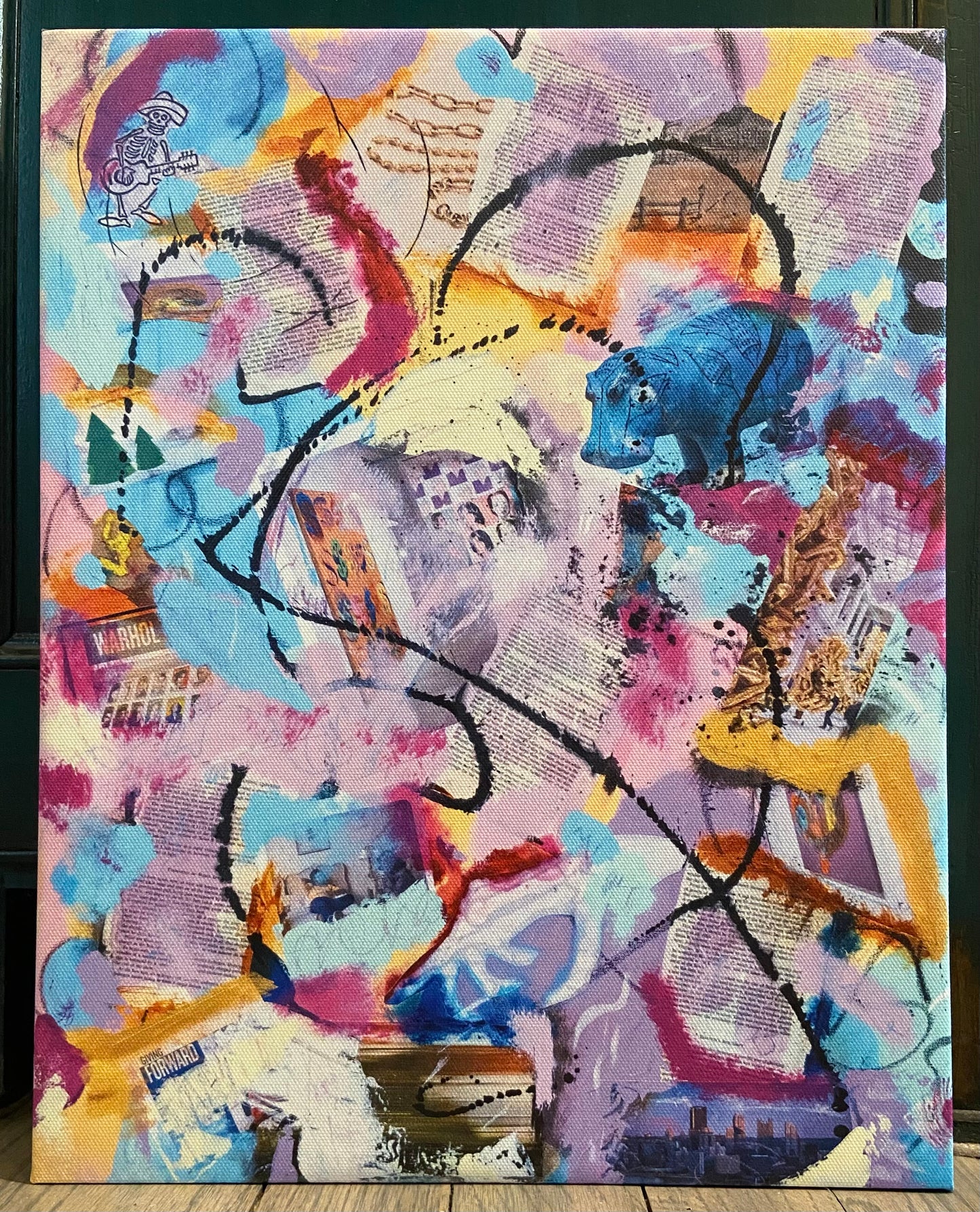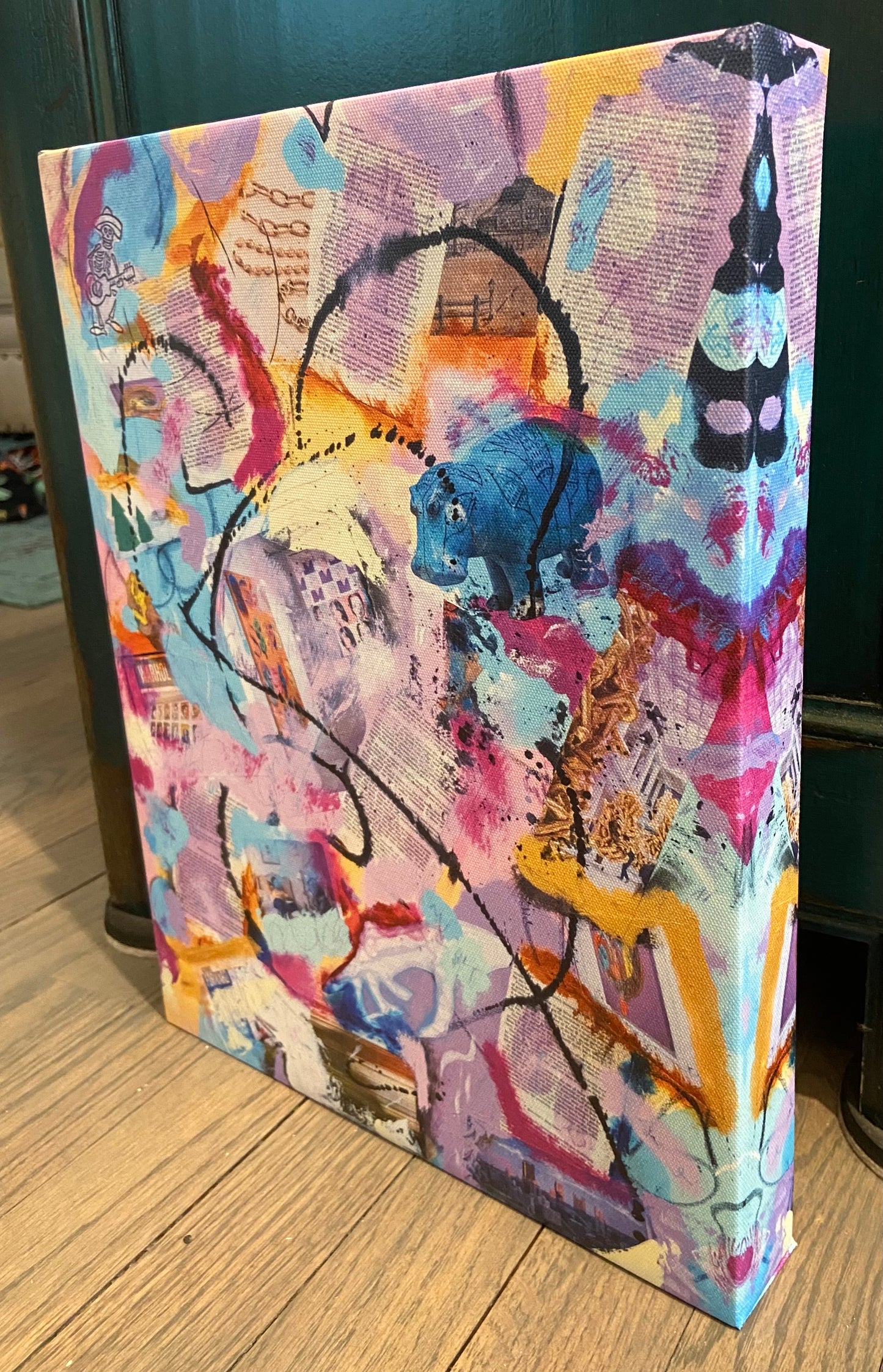Fine Art Canvas Print - "William & Andy: A Tribute To Art"
Fine Art Canvas Print - "William & Andy: A Tribute To Art"
Couldn't load pickup availability
Fine art print on museum quality canvas featuring Andy Warhol and William, the ancient Egyptian hippopotamus, who is the beloved unofficial mascot of The Met Museum in New York and is said to have oracular powers!
The little hippopotamus figurine was made in Egypt around 1961–1878 B.C. and placed in a tomb to magically guarantee the rebirth of the deceased. Several thousand years passed before it was excavated in 1910 and became part of The Met collection in 1917.
The name William is, of course, a modern nickname. It first appeared in 1931 in a story that was published in the British magazine Punch, a portion of which appears below:
He is described on the back of the frame as "Hippopotamus with Lotus Flowers, Buds and Leaves, XII. Dynasty (about 1950 B.C.), Series VII., Number 1, Egyptian Faience"; but to us he is simply William. He stands in the place of honour on an old oak chest in our drawing-room and excites the admiration and envy of all who come to call.
He is, of course, our oracle, and neither Margery nor I would dream of taking any important step without first consulting him. At least, not now. There have been distressing occasions when we have disregarded his advice, but there will be no more of these. We have learned our lesson. There was the unfortunate affair of our last summer holiday, for instance, when our choice lay between a small cottage in the heart of Wiltshire and a second-rate hotel at a popular seaside resort. Margery and I discussed the problem in William's presence one morning and, thinking that the sea air would be good for the children, decided on the hotel. We had just reached this momentous decision when I happened to glance at William, where he stood immobile and mysterious in his narrow black frame, and his stern forbidding aspect gave me a shock. He had not moved, of course—he will never do that on this side of Doomsday—but there was; something in the heavy droop of his left eyelid, in the curl of his great lip, and above all in the rounded bulk of his posterior, that convinced us both of his disagreement with our resolve. "Poor fools," he seemed to be thinking, "what are the tawdry delights of a cheap seaside hotel compared with the deep peace of the English countryside?"
We went to the sea. Margery was quite worried about it, and on the morning of our departure Peter, my eldest boy, aggravated her anxiety. "Mummy," he said, coming into the dining-room with a wooden spade in his hand, "why does William look so grumpy today? I don't think he wants us to go." But I would not change our plans at the last moment because of the fancied disapproval of an Egyptian hippopotamus, and we went. It rained unceasingly throughout our holiday, and the children, imprisoned by the weather in a dingy and overcrowded hotel, became fractious and difficult to control. Margery lost three pounds seventeen and six-pence playing bridge with perfect strangers; Peter fell against a hot-water radiator and cut his forehead open; the nurse had her watch stolen in a cinematograph theater, and I contracted mumps. When we got home I expected to find William in a sarcastic mood, declaring with every curve of his dumpy body, "I told you so." But I was wrong. William is far above that kind of shoddy triumph.
Not long ago I bought, in the teeth of William's manifest disapproval, a club called a driving baffy. It took me repeatedly into the rough, flew out of my hands and stunned a caddie, and lost me five new balls and a medal competition, and not a flicker of emotion did William betray on his large flabby countenance. He had warned me, I had disregarded his warning and I had suffered for my folly. He left it at that. After all, golf doesn't matter much. The original William has been in existence for nearly four thousand years, and he will stand invincible and serene for countless centuries after the names of Vardon, Taylor and Bobby Jones have faded into oblivion.
Margery and I are careful about William now. He has the casting vote in all family disputes, and in his calm dispassionate way orders our goings out and our comings in. We would no more dream of doing anything of which he disapproved than of questioning the authority of a point-duty policeman. Nor do we worry over the problems that vex the minds of amateur psychologists and the writers in the Sunday papers. Modernism, complexes, inhibitions, the fourth dimension—what do such things matter to us? William is sufficient.






